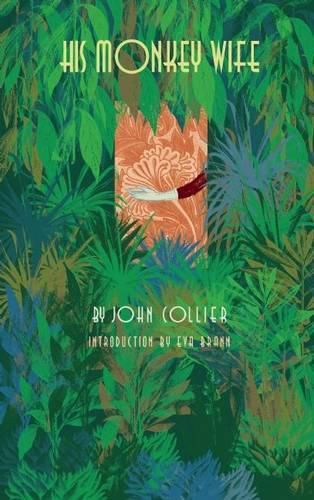Readings Newsletter
Become a Readings Member to make your shopping experience even easier.
Sign in or sign up for free!
You’re not far away from qualifying for FREE standard shipping within Australia
You’ve qualified for FREE standard shipping within Australia
The cart is loading…






A work of genius–The Boston Globe
From the first sentence of the novel the reader is aware that he is in the presence of a magician…[Collier] casts a spell and he does so always with a smile.–Paul Theroux
A wayward masterpiece…Whatever this volume has cost you, it is, believe me, a great bargain.–Anthony Burgess
It is impossible to convey the subtle wit which makes you laugh out loud, the beauty and penetrating satire which blend so perfectly into its brilliance.–Booklist
The whole is written with sly humor throughout and is illuminated by splendid similes and metaphors which mark the author as a true humorist.–New York Times
In the author’s own words: This is a strange book…an emotional melodrama, complete with a Medusa villainess, an honest simpleton of a hero, and an angelic if only anthropoid heroine, all functioning in the two dimensional world of the old Lyceum poster or the primitive fresco…where an angel may outsize a church, and where a man may marry a monkey on a foggy day.–from John Collier’s A Looking Glass
When Alfred Fatigay returns to his native London, he brings along his trustworthy pet chimpanzee Emily who, unbeknownst to Fatigay, has become civilized: literate, literary–and in love with Fatigay himself. After Emily meets Alfred’s fiancee Amy Flint, a 1920’s modern woman, she sets out to save her beloved from Amy’s cold grip. Emily is the perfect outside observer, writes Eva Brann in her introduction, because she is an African in Europe, a female in a man’s world, a servant to liberated sophisticates, and above all an old-fashioned creature in a modern world.
John Collier (1901-1980) was born in Britain, but spent much of his life in the U.S., where he wrote screenplays for Hollywood (The African Queen, Sylvia Scarlet, and I Am a Camera among them) and short stories for the New Yorker and other magazines. He was also a poet, editor, and reviewer.
$9.00 standard shipping within Australia
FREE standard shipping within Australia for orders over $100.00
Express & International shipping calculated at checkout
A work of genius–The Boston Globe
From the first sentence of the novel the reader is aware that he is in the presence of a magician…[Collier] casts a spell and he does so always with a smile.–Paul Theroux
A wayward masterpiece…Whatever this volume has cost you, it is, believe me, a great bargain.–Anthony Burgess
It is impossible to convey the subtle wit which makes you laugh out loud, the beauty and penetrating satire which blend so perfectly into its brilliance.–Booklist
The whole is written with sly humor throughout and is illuminated by splendid similes and metaphors which mark the author as a true humorist.–New York Times
In the author’s own words: This is a strange book…an emotional melodrama, complete with a Medusa villainess, an honest simpleton of a hero, and an angelic if only anthropoid heroine, all functioning in the two dimensional world of the old Lyceum poster or the primitive fresco…where an angel may outsize a church, and where a man may marry a monkey on a foggy day.–from John Collier’s A Looking Glass
When Alfred Fatigay returns to his native London, he brings along his trustworthy pet chimpanzee Emily who, unbeknownst to Fatigay, has become civilized: literate, literary–and in love with Fatigay himself. After Emily meets Alfred’s fiancee Amy Flint, a 1920’s modern woman, she sets out to save her beloved from Amy’s cold grip. Emily is the perfect outside observer, writes Eva Brann in her introduction, because she is an African in Europe, a female in a man’s world, a servant to liberated sophisticates, and above all an old-fashioned creature in a modern world.
John Collier (1901-1980) was born in Britain, but spent much of his life in the U.S., where he wrote screenplays for Hollywood (The African Queen, Sylvia Scarlet, and I Am a Camera among them) and short stories for the New Yorker and other magazines. He was also a poet, editor, and reviewer.